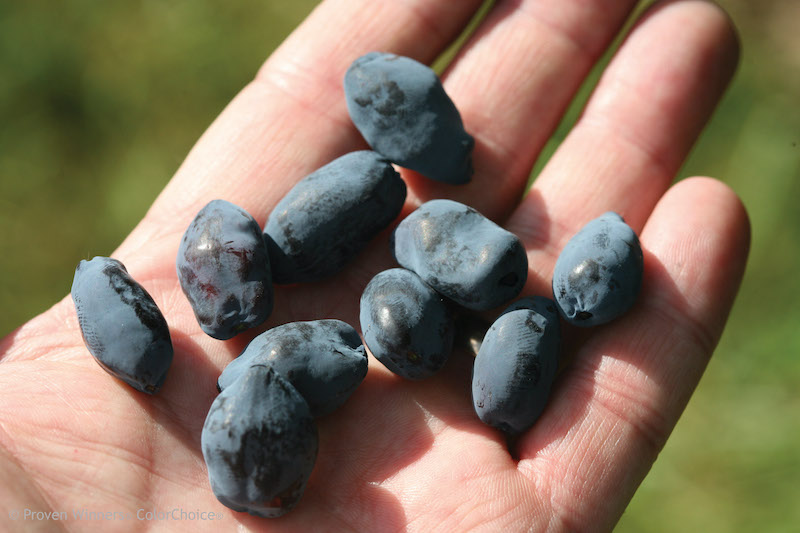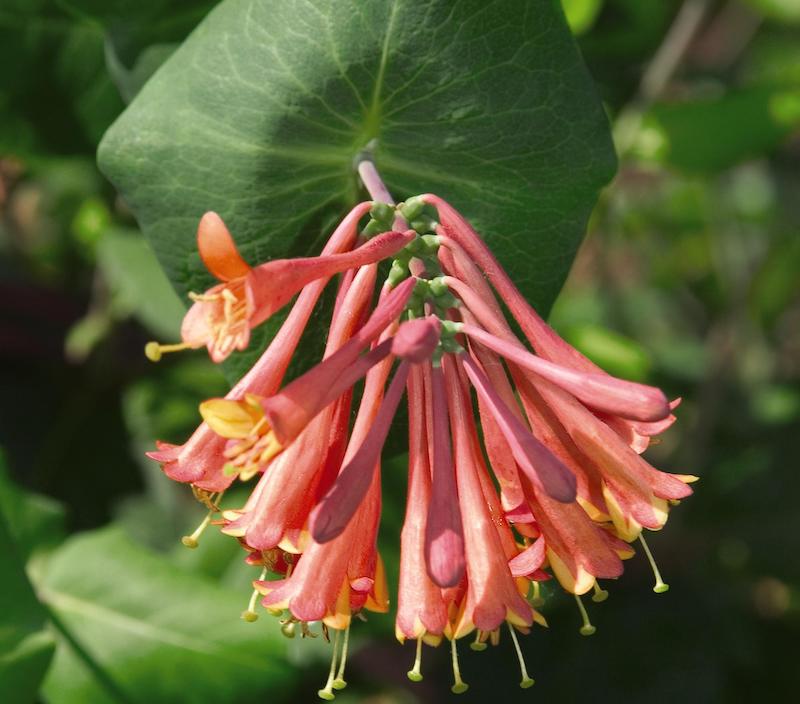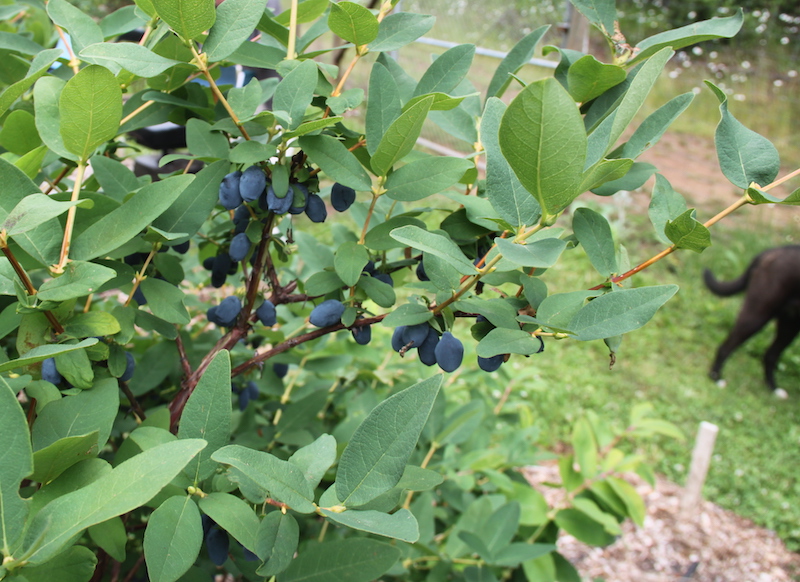Honeysuckle is a lovely perennial that boasts tubular flowers that give off a sweet floral scent. It’s easy for Honeysuckle to become a focal point in a yard when it is blooming, partly due to the flowers’ unique look and scent. This plant is easy to maintain and does well with very little care, making it even more desirable. Safety is important whenever a plant is featured in a landscape, and Honeysuckle is safe for humans, but the plant is not safe for animals.

Are Honeysuckle Poisonous to Children?
Honeysuckle is mostly safe and non-poisonous to children. The flowers may intrigue curious youngsters, but the blooms are safe. Honeysuckle flowers are often used as garnish, and it is safe to drink the nectar. The flowers of the Honeysuckle bush bloom during the spring and into the summer, and later in the growing season, the flowers turn into berries. Honeysuckle berries are not safe to eat and can cause illness if consumed in large quantities.

Are Honeysuckle Poisonous to Dogs?
All parts of the Honeysuckle bush are unsafe for dogs. Some varieties are more dangerous than others, but dogs can become sick if they eat any part of a Honeysuckle bush. The danger is elevated for puppies since they are smaller. Symptoms of Honeysuckle poisoning in dogs include lack of appetite, excessive drooling, diarrhea, and vomiting. Seek medical help if you suspect your pet may have eaten Honeysuckle or is showing signs of poisoning.

Are Honeysuckle Poisonous to Cats?
Be mindful of cats if you have a Honeysuckle bush growing in your yard. All parts of the plants, including the flowers, leaves, and berries are toxic to cats and kittens. Poisoning symptoms in cats include swelling near the mouth, vomiting, diarrhea, drooling, panting, and difficulty breathing.
Are Honeysuckle Poisonous to Other Animals?
While Honeysuckle is poisonous to cats and dogs, it is not known to be harmful to most other animals, including horses and goats. It is best to be careful and monitor animals if they have access to Honeysuckle shrubs.
Symptoms Of Honeysuckle Poisoning
While Honeysuckle blooms are safe for humans, the berries are not safe to consume. No part of the plant is safe for pets, including cats and dogs. Always check with your doctor or veterinarian for guidance if you suspect Honeysuckle poisoning.
Here are some common symptoms to look out for:
- Vomiting
- Diarrhea
- Irregular heartbeat
- Dilated pupils
Preventing Honeysuckle Poisoning
Deadheading Honeysuckle will prevent the berries from forming and will eliminate the threat to children. Removing the flowers can be tedious, but it will ensure that harmful berries do not develop. Keep pets safe by planting Honeysuckle in areas that are not accessible. For instance, plant Honeysuckle in the front yard if pets only have access to the backyard.
Pet Poison Helpline
If something were to happen to your furry friend, and you suspect that they are suffering from Honeysuckle poisoning, there is a poison control hotline to call for 24/7 vet advice. It is called the Pet Poison Hotline, and their phone number is (855) 764-7661.
Sources: "Bush Honeysuckles." Missouri Department of Conservation. mdc.mo.gov/
 |
Author Alison Cotsonas - Published 21-07-2022 |


